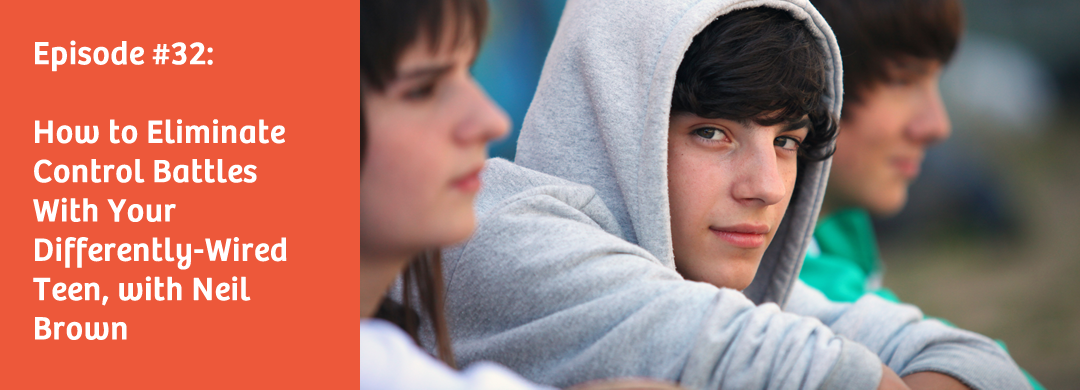
In this episode of the TiLT Parenting Podcast, I talk with Neil Brown, a licensed clinical therapist who works with parents, teens, couples, and families and the author of a new book, Ending the Parent-Teen Control Battle: Resolve the Power Struggle and Build Trust, Responsibility, and Respect. While we spend a lot of time talking about the needs of primary school kids at TiLT, this is the first podcast episode specifically aimed at parents with older kids who are navigating the tricky path of raising an adolescent.
Through his work, Neil works with many families whose children have developmental disorders, spectrum disorders, highly sensitive teens, and more, and in our conversation he shares his best insights and strategies for how parents raising differently-wired teens can avoid control battles and/or stop them if a family is already stuck in a control battle cycle. But even if you don’t have a teen under your roof yet, I know you’ll get something valuable out of our conversation. (They all grow up, don’t they?)
 About Neil: Neil D. Brown, LCSW, is a psychotherapist who has worked with families, couples, and individuals for more than thirty years. Deeply steeped in the theory and practice of family therapy, Brown uses a systemic approach that allows him to understand the system, or context, in which problems are both formed and are healed. This approach has revealed a simple yet profound method of empowering parents and their adolescent youth to put an end to destructive control battles for good. Brown is also a trainer of parents and mental health professionals. Additionally, Brown works in industry with teams and workgroups to increase organizational effectiveness.
About Neil: Neil D. Brown, LCSW, is a psychotherapist who has worked with families, couples, and individuals for more than thirty years. Deeply steeped in the theory and practice of family therapy, Brown uses a systemic approach that allows him to understand the system, or context, in which problems are both formed and are healed. This approach has revealed a simple yet profound method of empowering parents and their adolescent youth to put an end to destructive control battles for good. Brown is also a trainer of parents and mental health professionals. Additionally, Brown works in industry with teams and workgroups to increase organizational effectiveness.
THINGS YOU’LL LEARN FROM THIS EPISODE:
- Why the problem exists not with the child or the parent but with the pattern of interaction between the two
- What a parent-teen control battle looks like, and what causes it
- How to fight the pattern of a control battle instead of each other
- Why families need to learn how to “defeat the beast”
- The power in skipping consequences and punishments and instead give teens more responsibility
- The most common mistakes parents make that contribute to parent-teen control battles
- How to navigate control battles when a teen is depressed
- Why it’s normal (and good) for your kids to struggle and experience sadness, disappointment, and frustration
- The importance of helping teens develop self-advocacy
RESOURCES MENTIONED:
- Ending the Parent-Teen Control Battle: Resolve the Power Struggle and Build Trust, Responsibility, and Respect by Neil Brown



